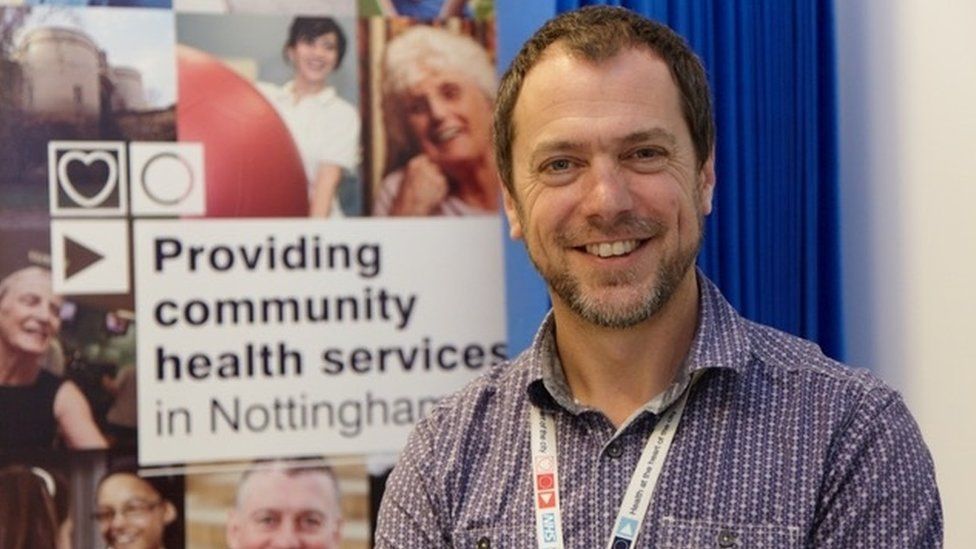Average age of first stroke in England falls, figures show
- Published
- comments

The average age of people in England who have a stroke for the first time has fallen over the past decade, new figures show.
It dropped from 71 to 68 for men and 75 to 73 for women between 2007 and 2016, Public Health England data shows.
Over the same period, the proportion of first-time strokes suffered by 40 to 69-year-olds rose from 33% to 38%.
PHE said the data showed strokes do not just affect the elderly and urged more people to be aware of the symptoms.
It said the drop in the average age of first strokes was because of a fall in the proportion of strokes suffered by over-70s.
This appeared to be due to better healthcare for the elderly, including health checks, that are helping them to monitor stroke risk factors, PHE said.
The Act FAST campaign is calling on people to phone 999 if they spot any signs of the condition in the face, arms or in speech to reduce the risk of disability or death caused by delayed treatment.
'Fast acting essential'
Rob Goodwin, from Nottingham, had been a fit 48-year-old when he had a stroke in 2016.
A keen cyclist, Mr Goodwin had none of the risk factors associated with stroke, such as high blood pressure, when he suddenly fell to the floor while getting dressed.
It was because of his partner quickly recognising his symptoms and his 17-year-old stepdaughter phoning 999 that he was able to receive treatment within 40 minutes of his stroke and make an almost full recovery, he said.
"If my partner and stepdaughter hadn't acted quickly then I would undoubtedly be in a very different situation. That fast acting is essential."
Philippa Haslehurst, from Chingford, north London, was 47 when she suffered a major stroke in 2014, caused by a hole in her heart.
She said it could have killed her were it not for her teenage daughter Beth, who recognised her symptoms from a previous Act FAST TV advert, enabling her mother to receive treatment quickly.
Mrs Haslehurst said awareness of stroke symptoms was as important as recognising a heart attack.
"It could happen to anybody. It happens to young people, it happens to children. I was a healthy person and I had a hole in my heart."
Strokes, which occur when the blood supply to the brain is cut off, are the third most common cause of premature death and a leading cause of disability in the UK.
It is estimated some 57,000 people in England suffered their first stroke in 2016.
PHE found the rate of first-time strokes in the population had fallen by 8% since 2007.
During that time, the percentage of first-time strokes suffered by over-70s went from 64% to 59%, while for those aged 40 to 59 it increased from 15.3% to 20%.
Prof Julia Verne, Public Health England's director, said the findings showed "everyone needs to be aware of the signs".
"Calling 999 as soon as you see even one of the symptoms develop - in the face, arms and speech - is essential. Speedy treatment will help prevent deaths and disability."
PHE called on more people between the ages of 40 and 74 to get an NHS health check, which can identify early signs and those who are at risk of a stroke.
Health Minister Steve Brine said: "Strokes still claim thousands of lives each year, so the message of this Act FAST campaign remains as relevant as ever."
The campaign will feature in TV and radio adverts and posters on buses.
Act FAST campaign - what to look for
- Face - Has their face fallen on one side? Can they smile?
- Arms - Can they raise both their arms and keep them there?
- Speech - Is their speech slurred?
- Time - Time to call 999
- Published25 January 2018
- Published29 November 2016
- Published24 May 2017